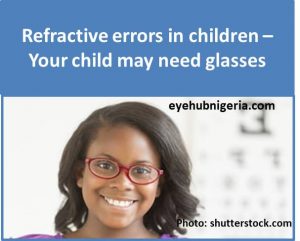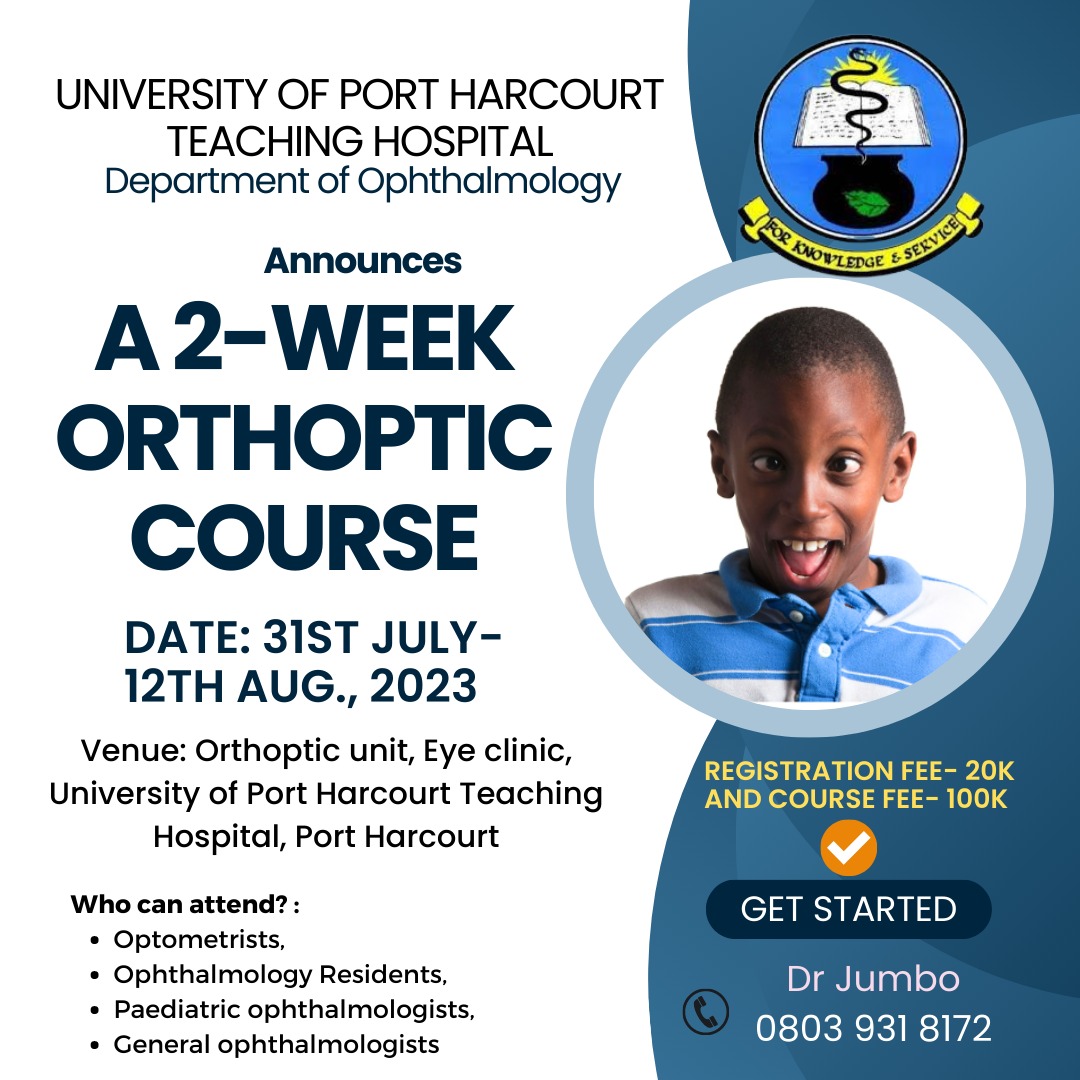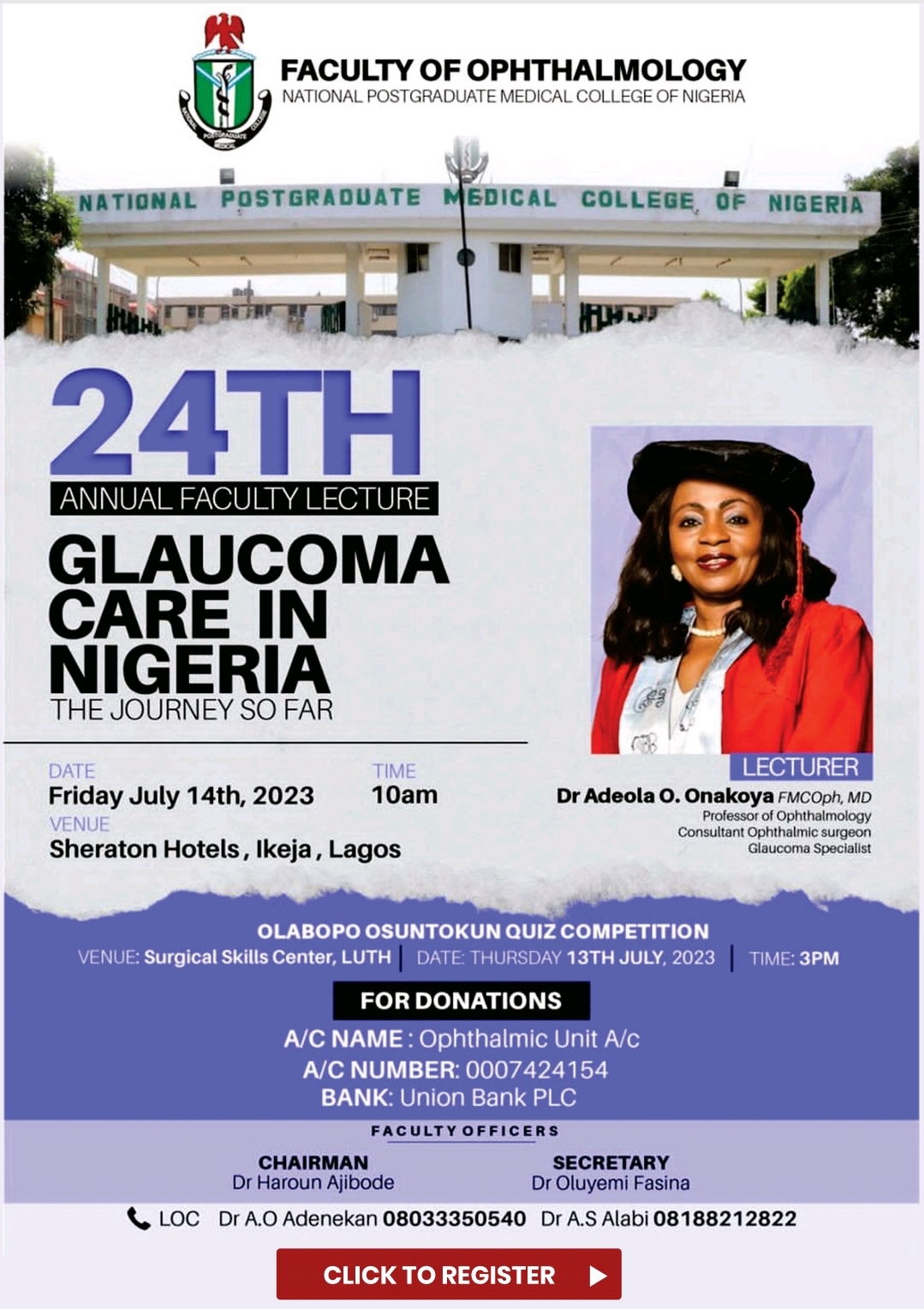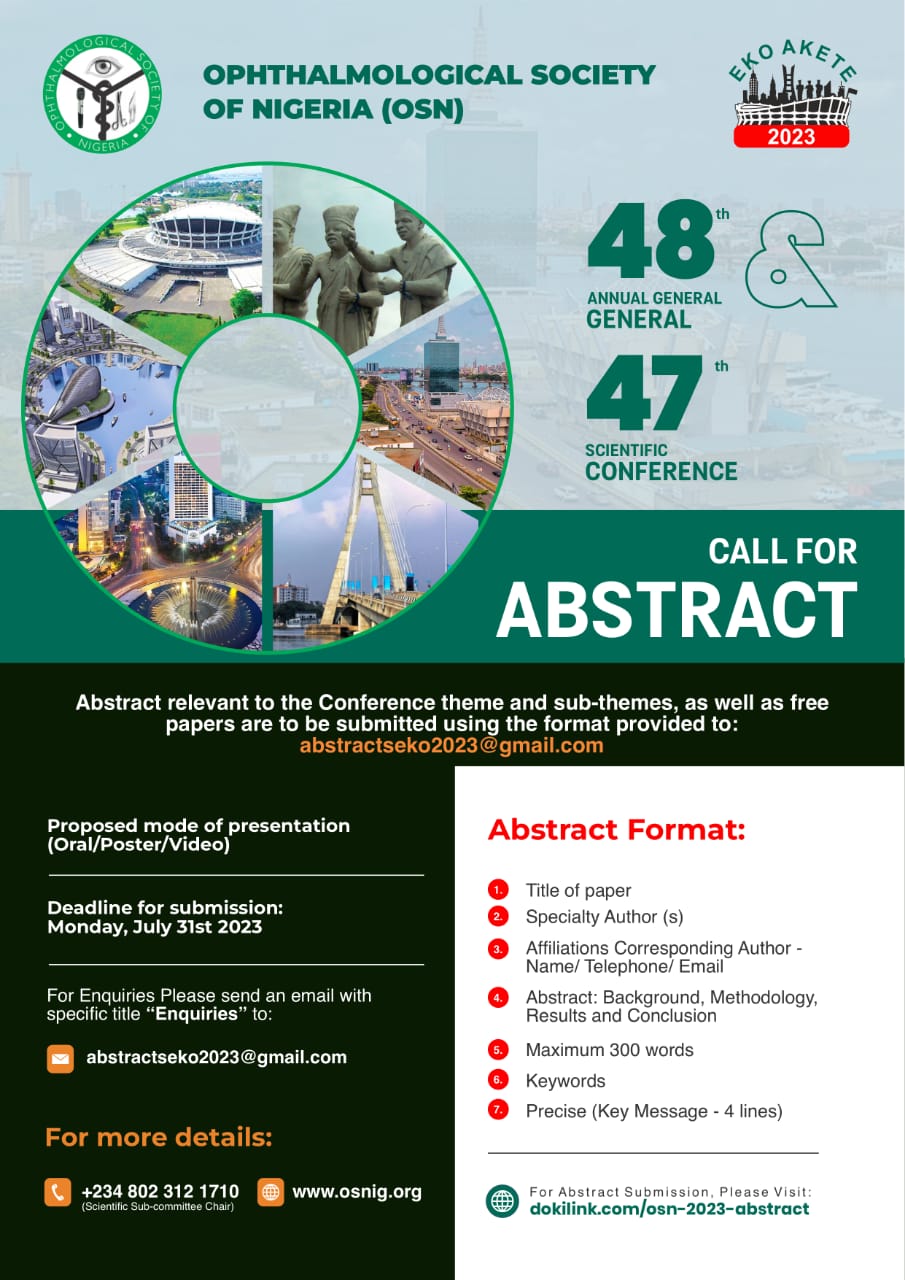Refractive error - The problem
The sense of sight is probably the most important of the five human senses. Children require good vision to develop normally since they learn a lot by imitation. Refractive error is the most common cause of poor vision in the school-aged child.
Refractive error prevents the eye from forming clear images on the retina which is similar to the film of a camera. There are different types of refractive errors. These include myopia (short sightedness) in which vision is blurred for distant objects, hypermetropia (long sightedness) in which the vision is blurred for near objects, and astigmatism which results in blurred images for both distant and near objects.
How do I know my child may have a refractive error?
Children with refractive errors may complain of difficulty with reading from the board or printed text, headaches and, or eye aches. They may also lose interest in reading or doing home and class work. They may prefer to sit very close to the television. In extreme cases, some have been considered to have behavioural and learning disabilities!
Can refractive error be corrected?
Glasses (spectacles) or contact lenses can help children with refractive errors see better. Ideally, a competent eye care worker should carefully examine a child with refractive error to determine if the child needs spectacles and the appropriate power of lenses he may require. This power may change as the child grows older, hence the need for annual eye evaluation.
Is my child too young to wear glasses?
A child is never too young or too old to wear spectacles. Spectacles are aids, which when worn compensates for the child’s deficiency. If a child requires glasses but does not get it on time, it may affect the normal eye-brain development and may cause amblyopia (lazy eye).
Common misconceptions about spectacle wear in children
Wearing glasses can make my child’s vision worse – Wearing glasses does not make a child’s vision worse. When adequately corrected, the child sees better with the glasses than without them. This is only logical and buttresses the point that the role of glasses is to aid vision. This is akin to the role of an umbrella in the rain. It does not mean that the glasses have made the child’s vision worse.
My child is too young to wear glasses - A child is never too young to wear spectacles. There are other options of correction, such as the use of contact lenses for very small babies. Discuss your options with your eye doctor.
Wearing glasses can “cure” refractive error – Glasses do not “cure” the refractive error a child has. Glasses help to improve sight by directing the light entering the eye appropriately to fall on the retina, so that a clear image can be formed. Naturally, children are born somewhat longsighted. However, the refractive state tends towards normal as they grow older. They may, therefore, not require glasses after a certain age. This is usually the case for long-sighted children.
Last words
That child desires good vision, that child has a right to good vision. Let that child have the spectacles he needs.




